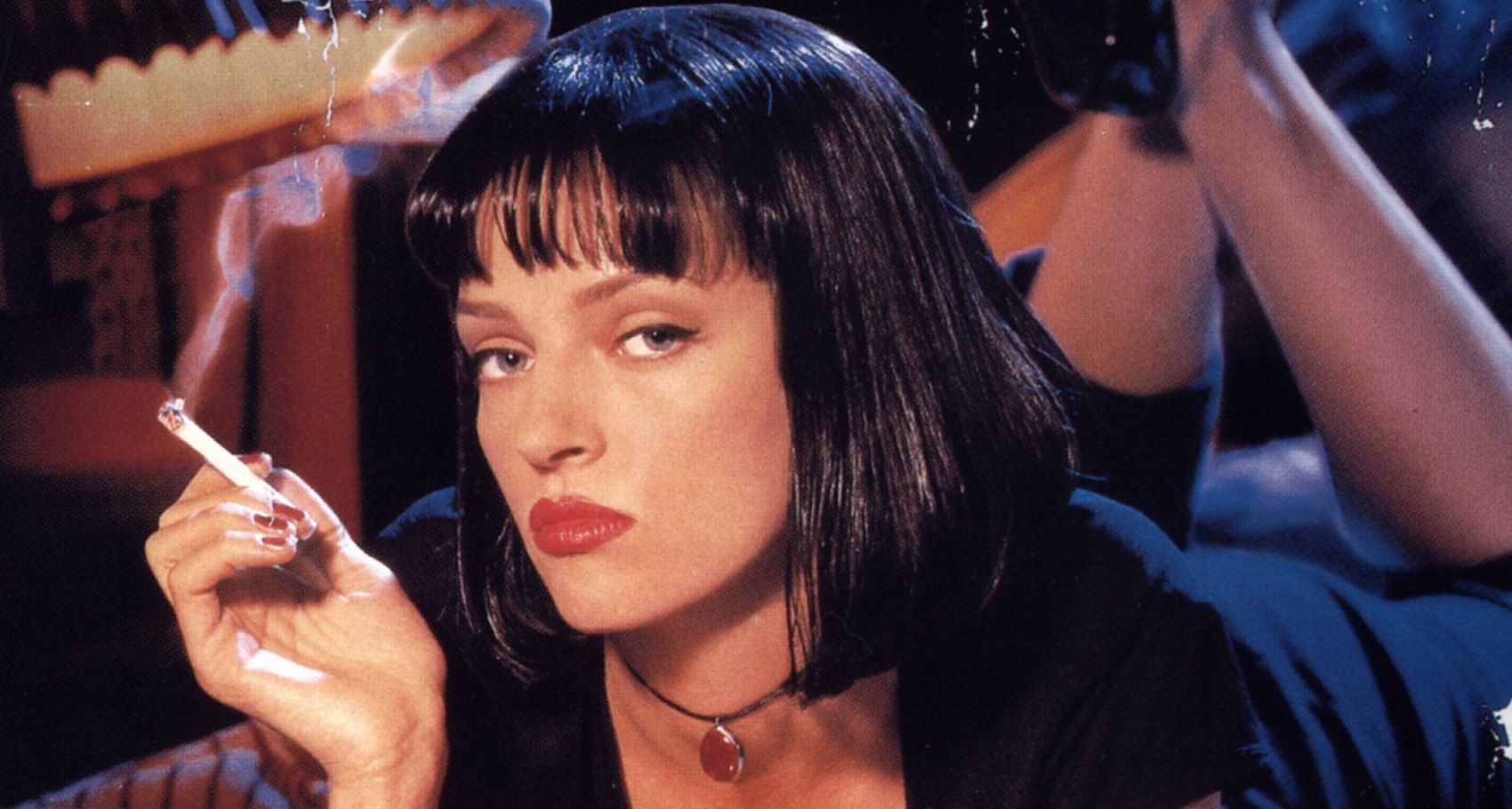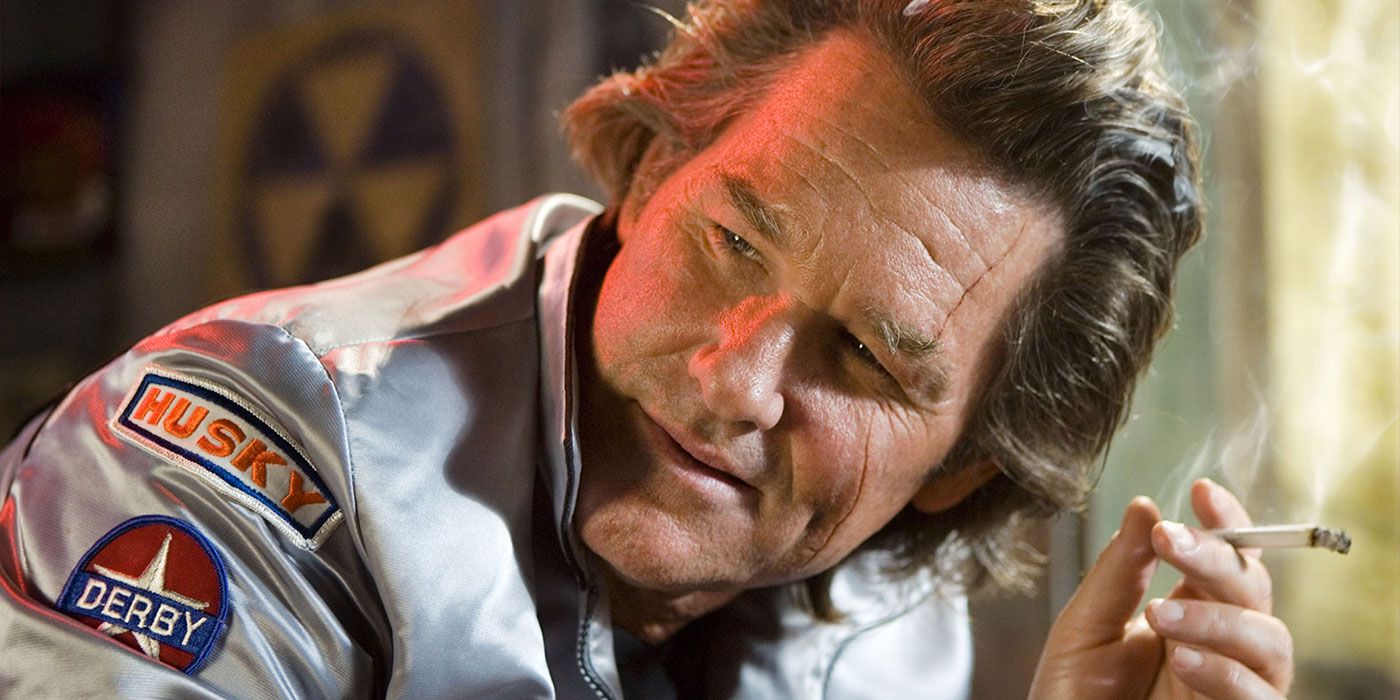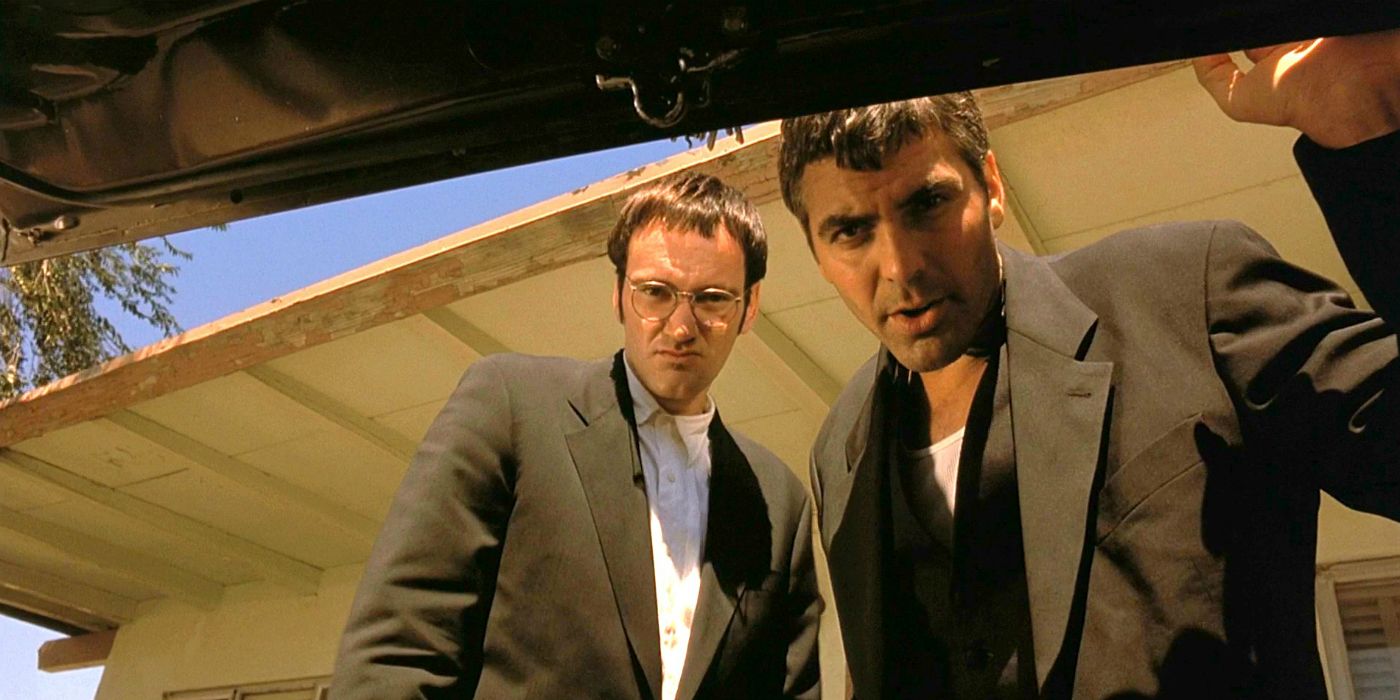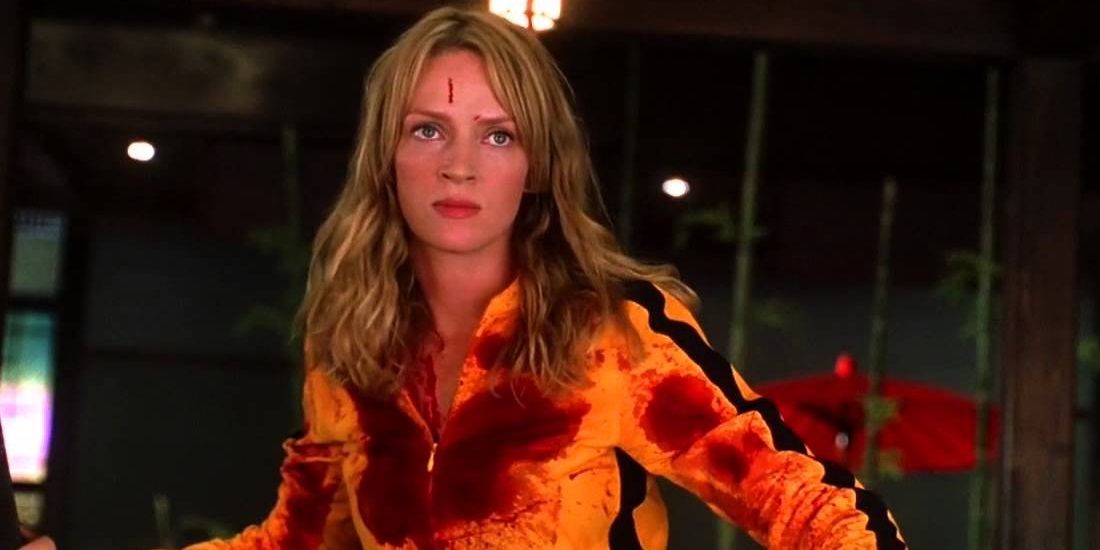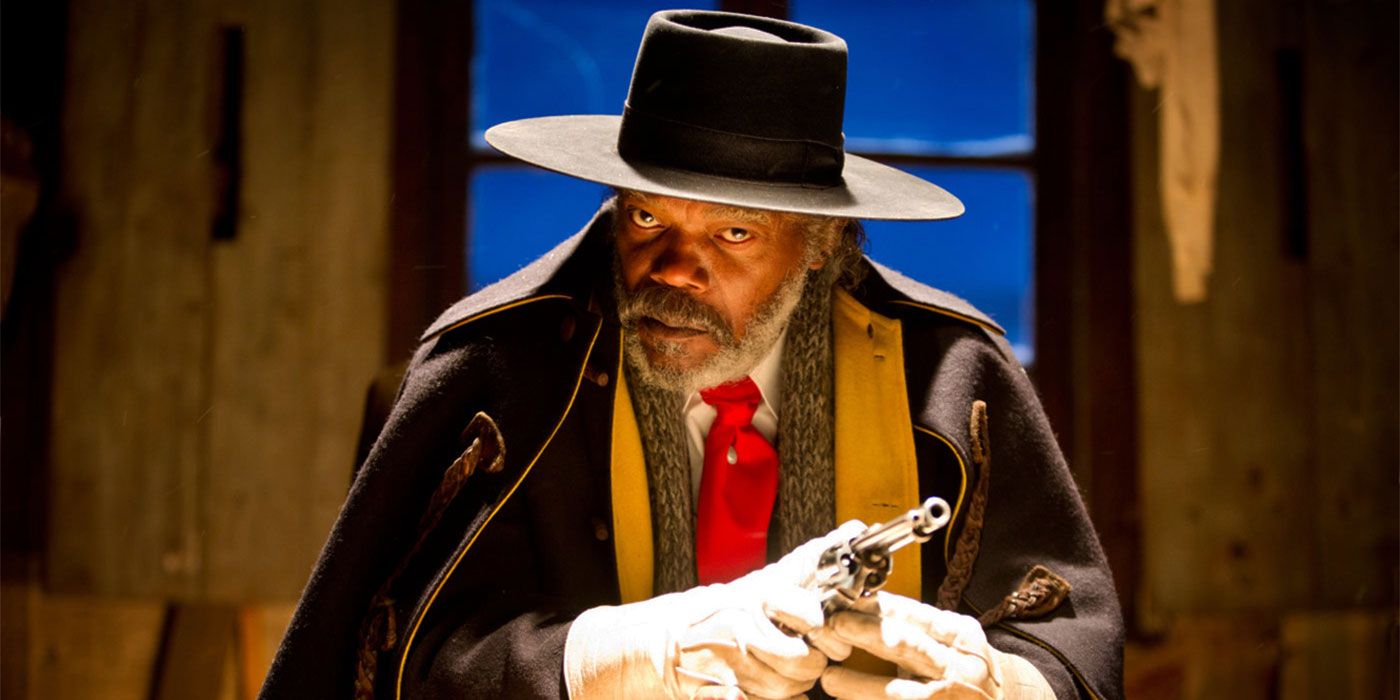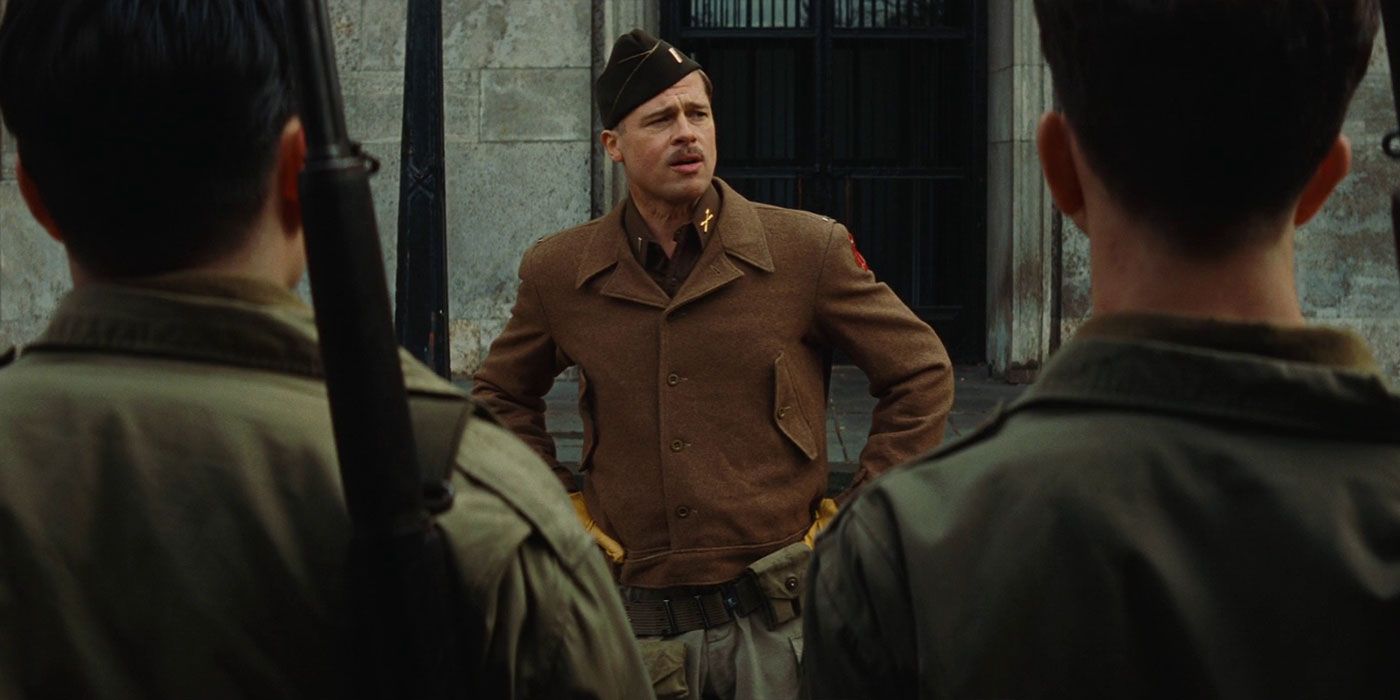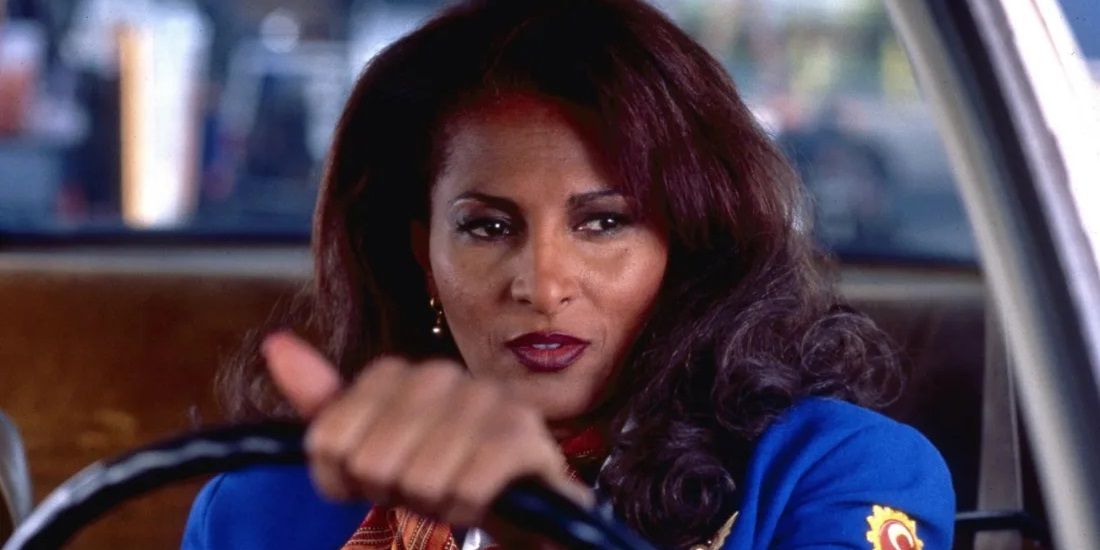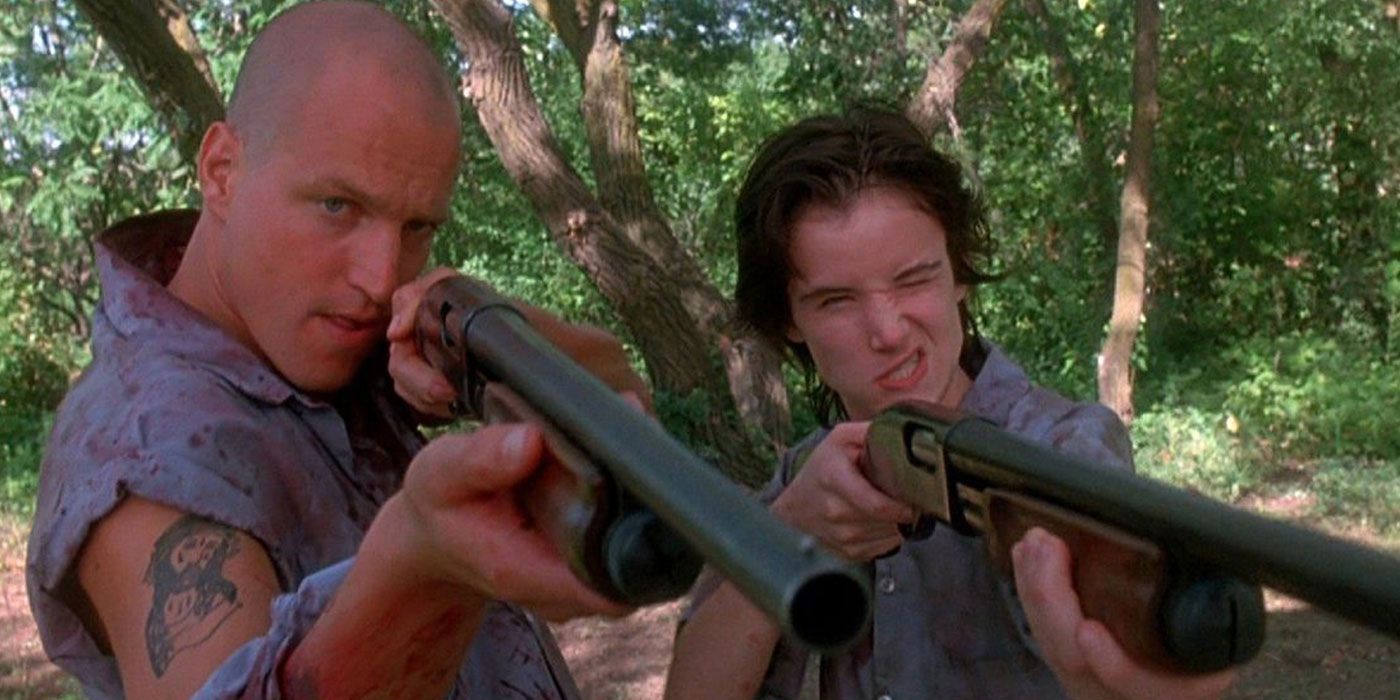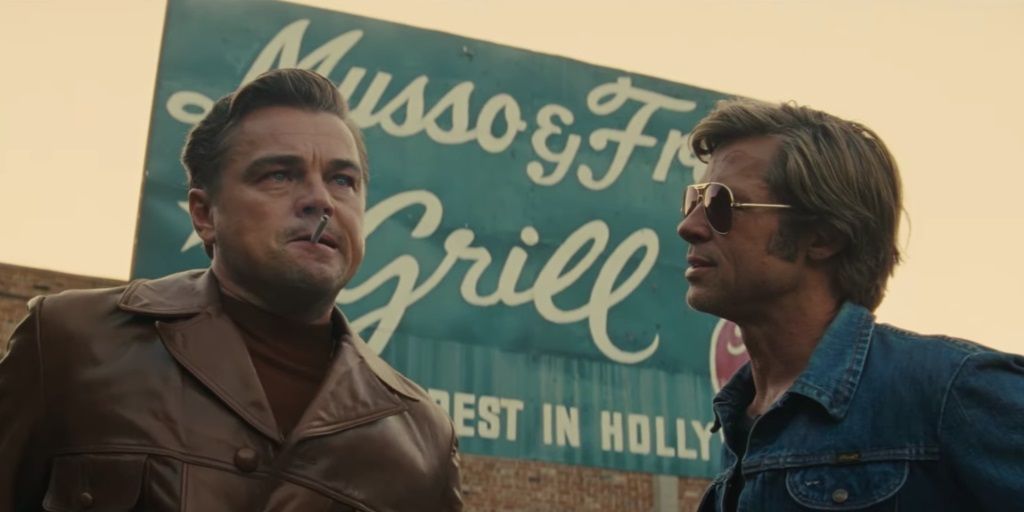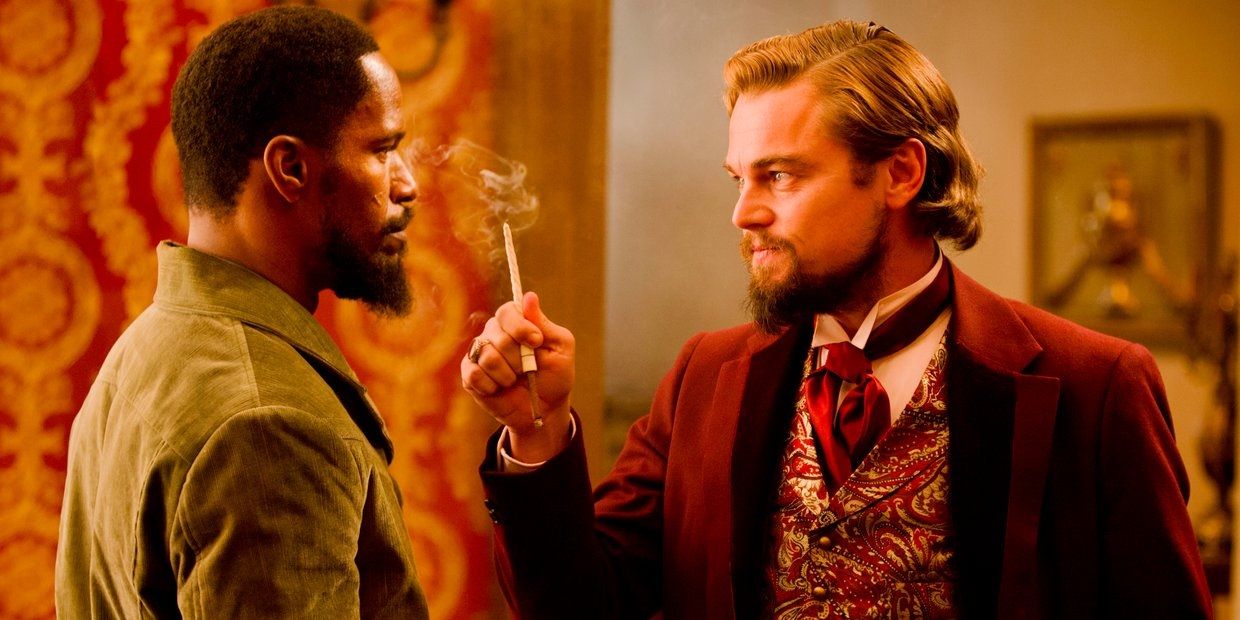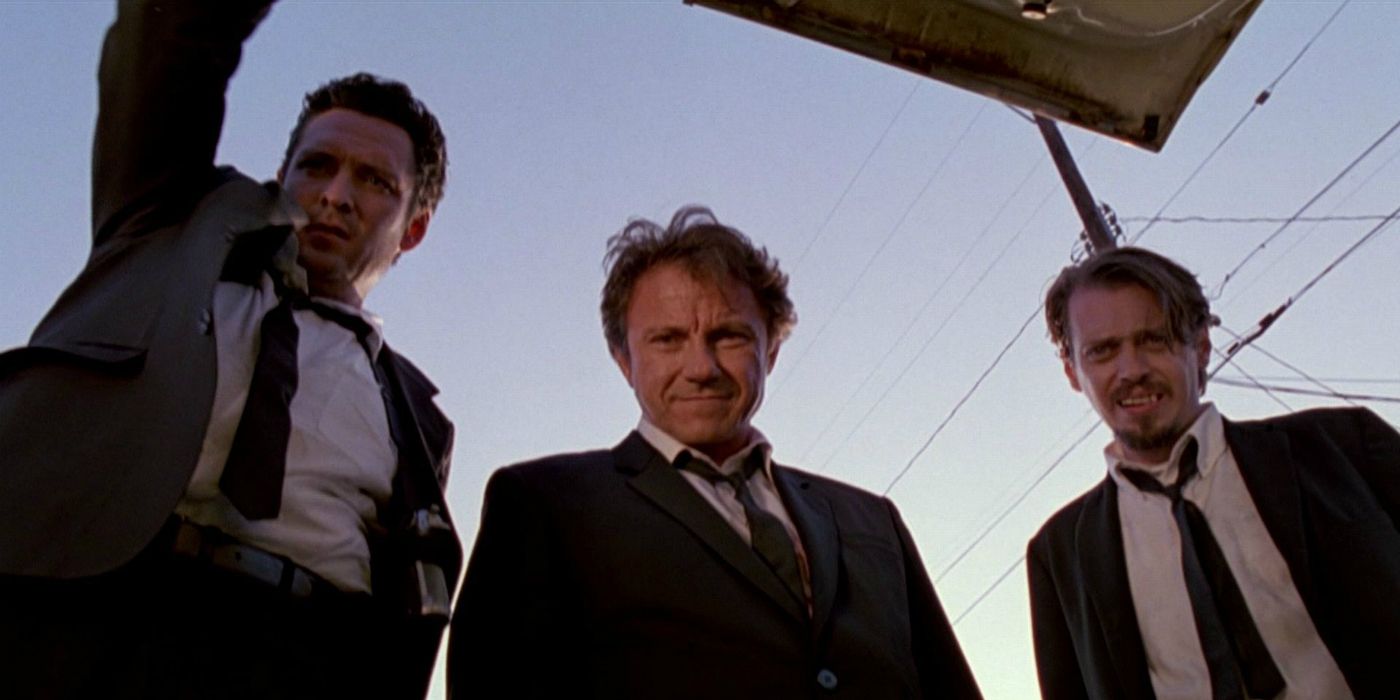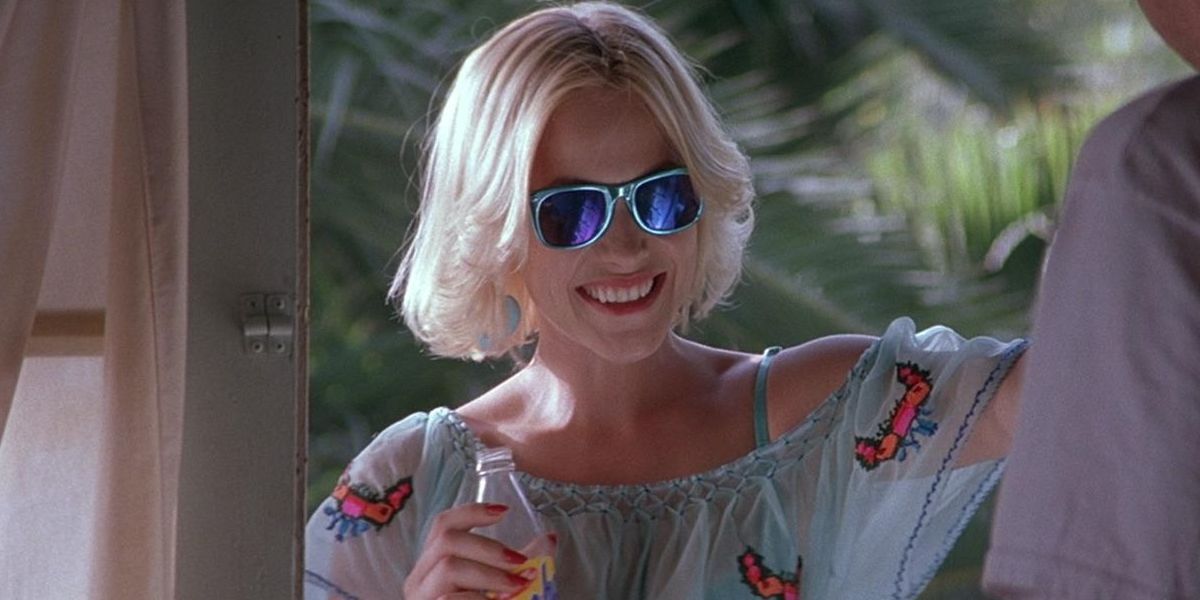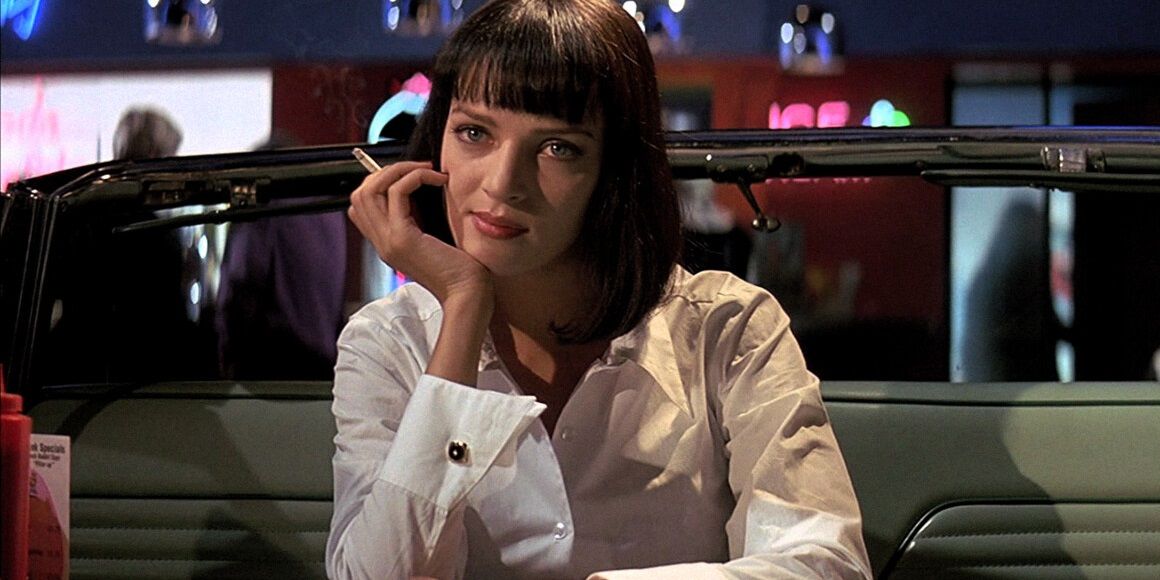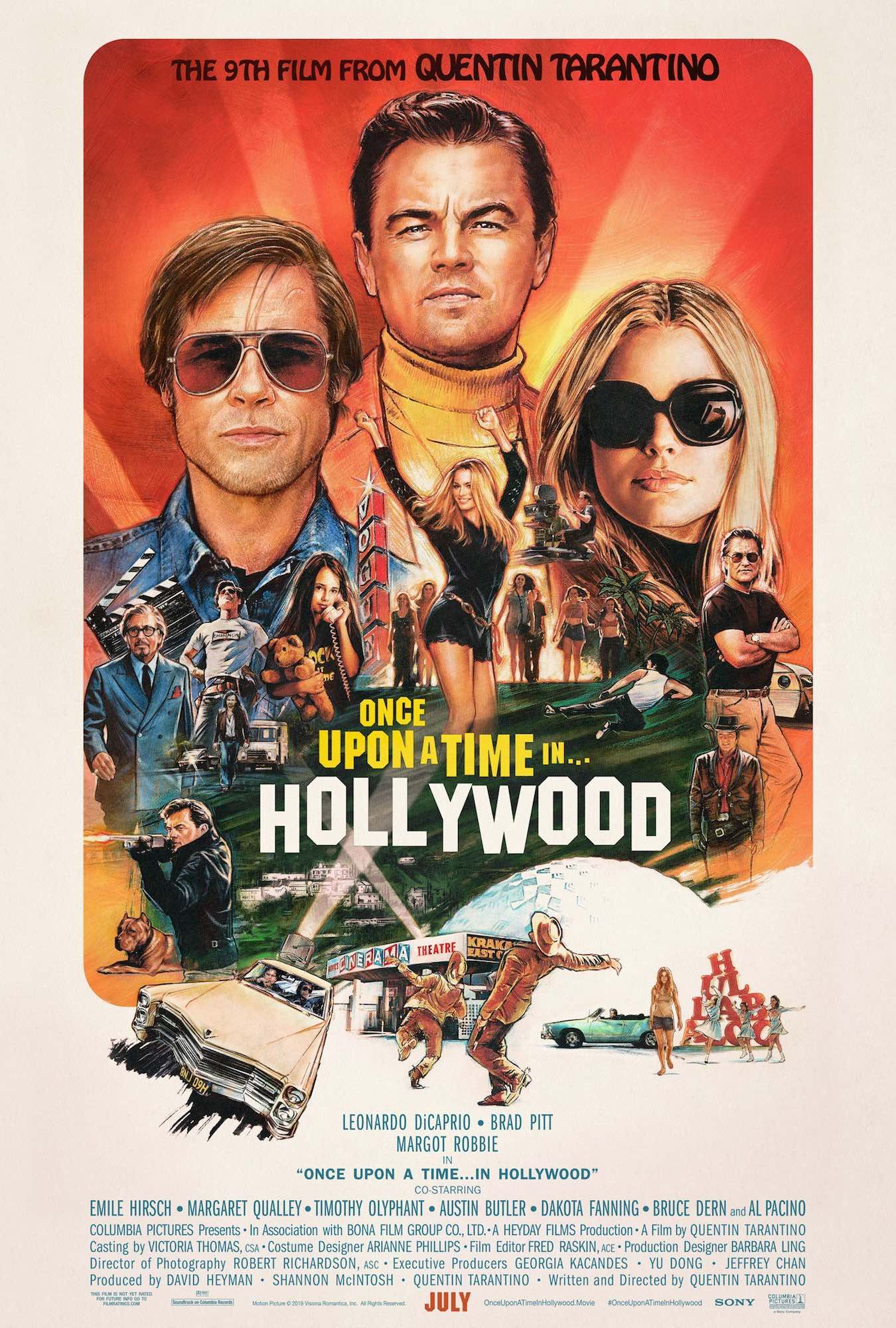Quentin Tarantino has an entirely unique screenwriting method. When he’s writing dialogue, he says, he simply gets his characters talking and lets them tell him where each scene is going. He writes scene directions as if he’s writing a novel. There’s a basic rule that screenplays are written to be seen, not read, but Tarantino writes his scripts to be read. He doesn’t stop writing until he’d be happy to stop at the script and just publish that as the only form the story is told in.
Tarantino has directed most of his scripts, but he’s handed some of them off to other filmmakers. Here are all of Quentin Tarantino’s screenplays, including the ones that he didn't direct, ranked.
Updated February 3rd, 2020: Tarantino’s latest movie, Once Upon a Time in Hollywood, was recently nominated for the Academy Award for Best Original Screenplay. He initially worked on the story for years as a novel before realizing it would make a great movie. The final result has been praised as one of the director’s best movies. While diehard Tarantino fans eagerly await the publication of Once Upon a Time in Hollywood’s script in paperback form, we’ve updated this list to include it.
Death Proof
Although Death Proof is technically a slasher film, it’s awfully boring for one. It has a promising setup for a slasher – a movie stuntman uses his “death-proof” car to go around killing young female motorists – but the follow-through has no panache. A lot of it is just the characters sitting in their car, driving around Tennessee, having cumbersome conversations about nothing.
Tarantino himself has admitted to Death Proof’s faults, saying it’s the worst movie he’s ever made (and he hopes it always will be and he never makes a worse movie), so a lot of his fans write it off entirely.
From Dusk Till Dawn
Unlike most of Tarantino’s other scripts, which are born from genuine inspiration and years of musings on a certain genre construct, From Dusk Till Dawn was a paid writing assignment – the director’s first, in fact – based on an idea by Robert Kurtzman, who hired him to write the script. The eventual film was directed by Tarantino’s close friend Robert Rodriguez, seemingly honoring the original script.
From Dusk Till Dawn is a fun splatter-fest, with a lot to please fans of vampire movies, but it doesn’t have the inventive takes on structural form or instant memorability that Tarantino’s later work would have.
Kill Bill
Quentin Tarantino considers Kill Bill to be one movie – and tried to make it as such before being forced to split it into two parts – so we’ll count it as one script. The unconventional chapter-based structure and nonlinear narrative of Kill Bill helps to keep it unpredictable, but there are scenes that drag on for far longer than they should, like the scene where the Bride commissions Hattori Hanzo to make her a new sword.
The movie is more action-oriented than the rest of Tarantino’s filmography, so the script is harder to judge, but on the whole, it’s a terrific blending of spaghetti westerns, grindhouse cinema, and kung fu movies.
The Hateful Eight
While The Hateful Eight is incredibly long – much longer than it needed to be – its script does succeed in slowly ratcheting up the tensions between the characters. The cliffhanger midpoint with the poisoning of the coffee and the voiceover recap when we fade back in are a nice touch, tying the film to Tarantino’s inspiration for it: two-part episodes of shows like Bonanza and The Virginian.
A pot-boiler narrative like this is only as good as its ending, and thankfully, The Hateful Eight culminates in a suitably intense and bloody climax. It might not be 100% satisfying, but it’s satisfying enough.
Inglourious Basterds
Quentin Tarantino’s darkly comic World War II epic has everything you’d expect from a Tarantino war film – bloody violence, historical revenge fantasies (Jewish American soldiers literally kill Hitler in the big finale), a memorable sadistic villain etc. – but it also has talky scenes that feel like endless slogs.
While the tension is palpable in the “Who Am I?” basement sequence, as the audience knows that some of the characters are Allied spies who have infiltrated a Nazi party (no pun intended), but the name game goes on for far too long before anything happens. Still, as a kind of “Pulp Fiction set during WWII,” Inglourious Basterds is a great success.
Jackie Brown
Jackie Brown is Tarantino’s first – and so far only – adaptation of someone else’s work. It’s based on the novel Rum Punch by Elmore Leonard, the legendary crime writer who had more of an influence on Tarantino’s dialogue than anyone.
Tarantino tweaked the plot of the novel slightly to fit it into the blaxploitation genre that he wanted to homage (the movie was intended as a comeback vehicle for Pam Grier, who’s fantastic in the title role), but on the whole, it’s a faithful adaptation. Using Leonard’s source material kept Tarantino from falling into his usual stylistic traps, resulting in an underrated gem.
Natural Born Killers
Quentin Tarantino’s screenplay for Natural Born Killers was ultimately directed by Oliver Stone, who rewrote it to make it more of a Stone film than a Tarantino film. As a result, the movie that we see is pretty far removed from Tarantino’s original script, but his mark can still be felt. Imaginative sequences such as a multi-camera sitcom setup featuring dark family situations like child abuse and incest juxtaposed against canned laughter elevate this above a simple blood-fest.
Natural Born Killers is a brilliantly satirical movie, tackling various areas of American politics and culture, but this is more from Stone’s contributions than Tarantino’s.
Once Upon a Time in Hollywood
Quentin Tarantino initially thought about developing an Elmore Leonard-esque storyline to carry his characters through Once Upon a Time in Hollywood, but he later realized that the characters were interesting enough that they didn’t need an underlying plot to keep the audience’s attention. So, the second act of this movie is essentially just a day in the lives of its characters.
It’s constructed with vignettes, but since each vignette is either hilarious, suspenseful, or otherwise gripping, it doesn’t matter that this story doesn’t have a traditional structure. The unconventional narrative, the thoroughly developed cast of characters, and the surprising blend of fact and fiction make this one of Tarantino’s finest screenplays.
Django Unchained
The script for Django Unchained understandably won the Academy Award for Best Original Screenplay, because it’s not just a great spaghetti western with an engaging plot and a cast of iconic characters; it also has a breathtakingly original concept. While Tarantino’s use of American slavery as the subject matter for an ultraviolent, darkly comic spaghetti western proved to be controversial among some viewers and critics, there’s no denying that it had never been done before.
In many ways, Django Unchained birthed its own genre – one that Tarantino has termed “the southern” – and it’s already the ultimate pinnacle of that genre.
Reservoir Dogs
Quentin Tarantino wrote the script for his indie directorial debut, Reservoir Dogs, as a young video store clerk attending screenwriting workshops. It is a reconciliation of the teachings of craft and the director’s subversions of the rules, because as Tarantino’s debut, it was made before his genius was nurtured by fans and critics who would bombard him with praise.
Back then, his work wouldn’t automatically be adored, so it seems as though more care was given to the script’s structure. Reservoir Dogs is a sleek, lean thriller with a well-rounded cast of characters and no flabby, meandering scenes dragging the plot down.
True Romance
While Oliver Stone took Tarantino’s script for Natural Born Killers and rewrote it beyond recognition, Tony Scott left his script for True Romance relatively intact. The only difference between Scott’s film and Tarantino’s script is that the script had a nonlinear storyline and Scott reordered it to have a more conventional shape.
There are some weird touches – like the fact that Clarence is often given advice by the ghost of Elvis Presley – but nothing feels out of place and it all serves to make the movie feel unique and unforgettable. Plus, the “Sicilian” scene shared by Christopher Walken and Dennis Hopper is a masterclass in character writing.
Pulp Fiction
Tarantino’s script for Pulp Fiction is the pinnacle of his creative style. It’s a thrilling read just on its own, and the director translated it into one of the greatest movies ever made. The pulp magazine-inspired story threads are all familiar plotlines – a crime lord pays a boxer to throw a fight, a gangster goes on a date with his boss’ wife etc. – but it flips all of the clichés and tropes of those stories and their characters on their head.
Also, the nonlinear storytelling has been copied by every screenwriter since 1994, but back then, it was pretty groundbreaking work.

